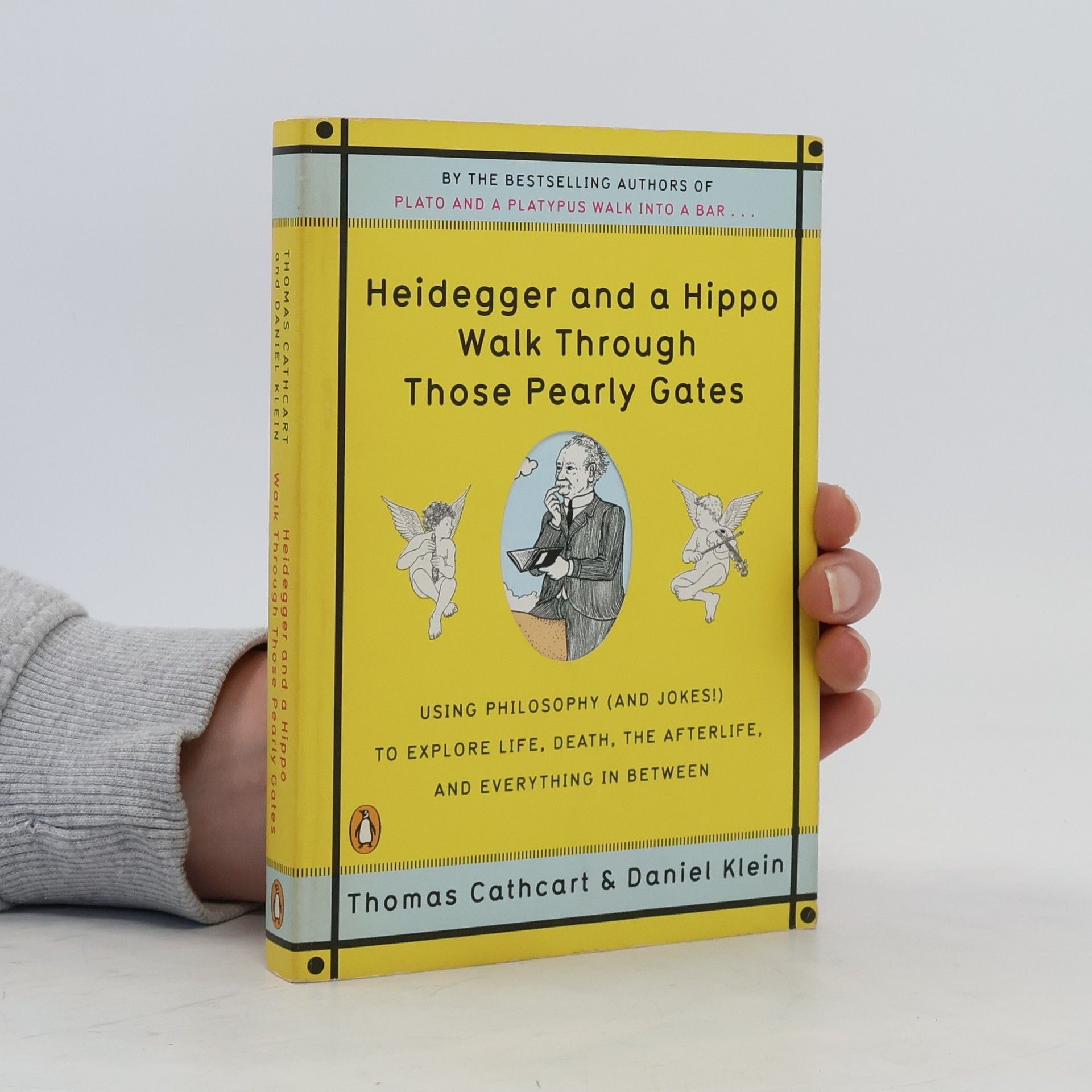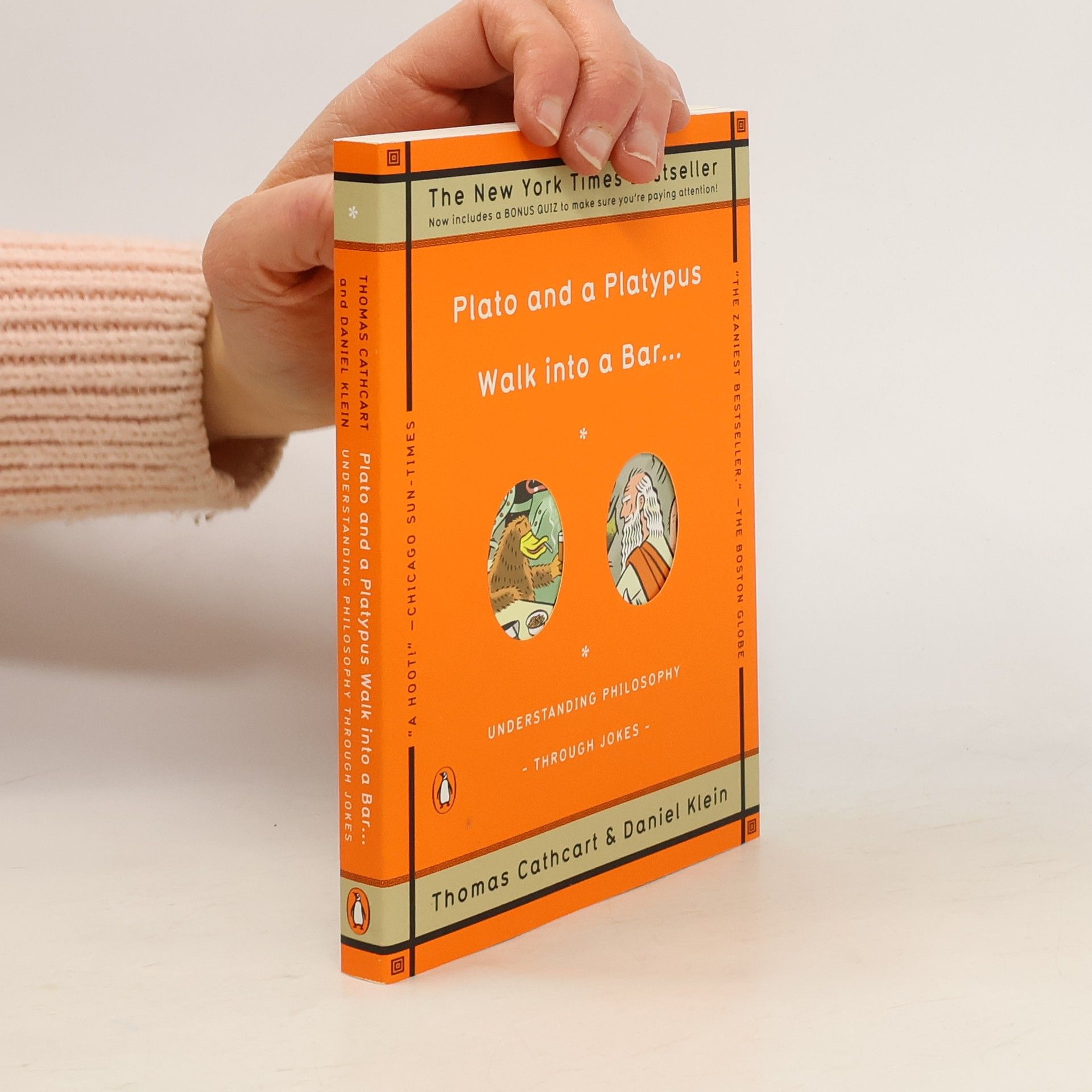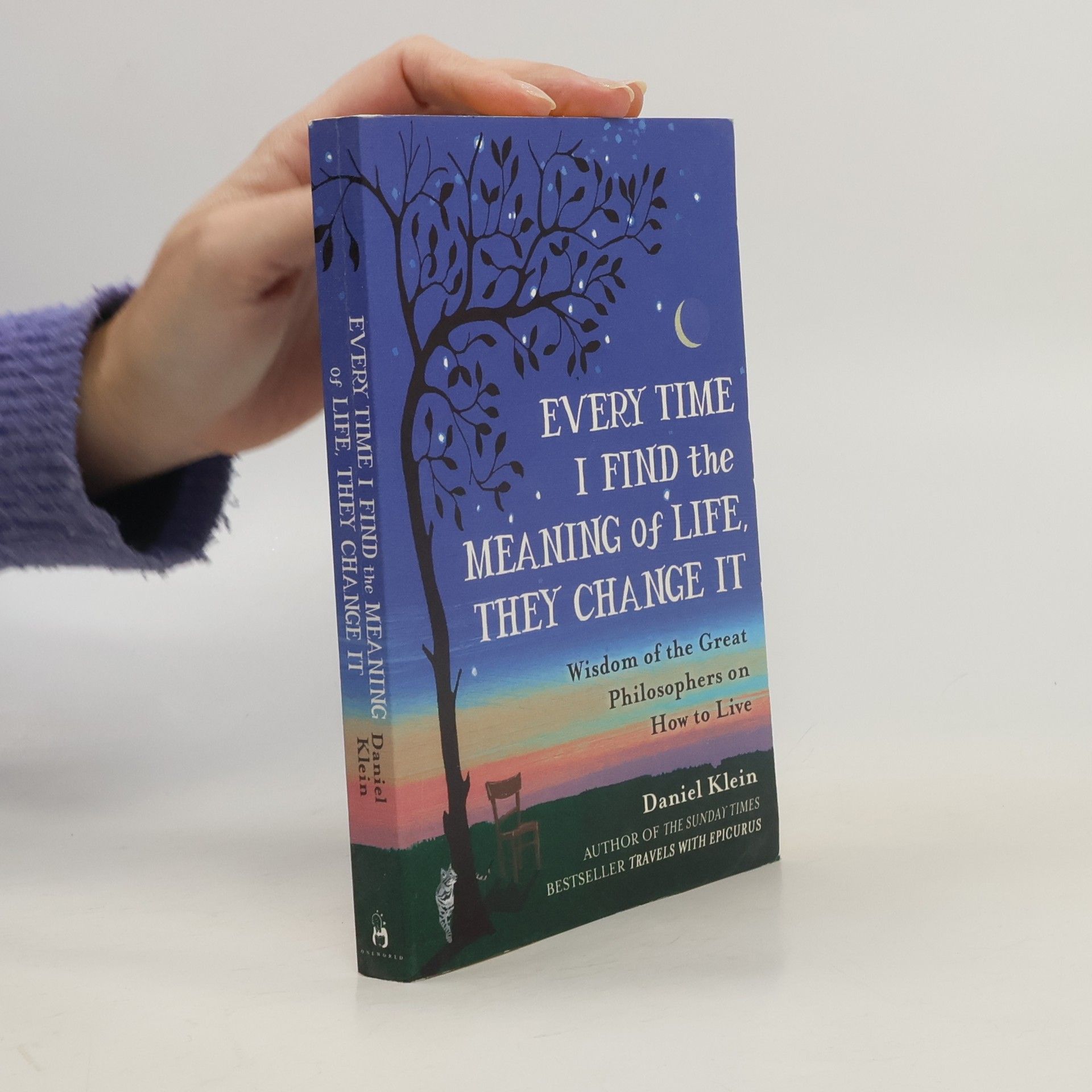The History of Glass
- 288pages
- 11 heures de lecture
Daniel Klein est un écrivain acclamé, célèbre pour sa capacité à éclairer les concepts philosophiques avec esprit et une prose accessible. Son œuvre relie magistralement des idées profondes à des observations quotidiennes, souvent humoristiques et auxquelles le lecteur peut s'identifier. Le style distinctif de Klein est ludique et expert dans la démystification de la pensée complexe, le rendant attrayant pour un large public. Par son écriture, il invite les lecteurs à explorer les questions fondamentales de l'existence avec une touche légère et une curiosité intellectuelle.






You don't need a dusty tome to encounter great ideas.
"Every time I find the meaning of life, they change it." The words of Reinhold Niebuhr provide the title and set the tone for what is a wryly humorous look at some of the great philosophical pronouncements on the most important question we can face. Daniel Klein's philosophical journey began fifty years ago with just this conundrum; he began an undergraduate degree in philosophy at Harvard University to glean some clue as to what the answer could be. Now in his seventies, Klein looks back at the wise words of the great philosophers and considers how his own life has measured up. Told with the same brilliantly dry sense of humour that made Travels with Epicurus a Sunday Times bestseller, Every Time I Find the Meaning of Life, They Change It is a pithy, dry, and eminently readable commentary on one of the most profound subjects there is.
n. : a person so insignificant that if you Google his name, nothing comes up. Yiddish Words for Modern Times is a hilariously useful lexicon of neologisms that capture the flavor of life as we live it today.This clever book introduces more than 200 new terms rooted in real Yiddish, accompanied funny use-it-in-a-sentence examples and entertaining etymology.• Yiddish has long enriched English language slang.• Covers subjects including technology, family, dating, anxiety, insults and more• All terms are a unique blend of classic Yiddish with modern topicsIn this fast-changing modern world experienced online and through apps, of foodies, legal weed, and shifting social constructs, our need for the expressive wonders of Yiddish has never been greater.Bothered by that unanswered drift of e-mail piling up ( e-charazi ), stuffed by food or worry ( gifilted ), feeling like the dating app sends in only clowns (a zhlub magnet )? Schmegoogle is here to help.• Hilarious useful Yiddish neologisms for the 21st century• Makes a great gift for Jewish holidays or anyone who loves Jewish humor, as well as language nerds.• Perfect for display on the coffee table to crack open anytime• Add it to the shelf with books like Yiddish with Dick and Jane by Ellis Weiner and Barbara Davilman, Born to Yiddish Language and Culture in All of Its Moods by Michael Wex, and Yiddish with George and Laura by Ellis Weiner, Barbara Davilman.
This New York Times bestseller is the hilarious philosophy course everyone wishes they’d had in school. Outrageously funny, Plato and a Platypus Walk into a Bar... has been a breakout bestseller ever since authors—and born vaudevillians—Thomas Cathcart and Daniel Klein did their schtick on NPR’s Weekend Edition. Lively, original, and powerfully informative, Plato and a Platypus Walk Into a Bar... is a not-so-reverent crash course through the great philosophical thinkers and traditions, from Existentialism (What do Hegel and Bette Midler have in common?) to Logic (Sherlock Holmes never deduced anything). Philosophy 101 for those who like to take the heavy stuff lightly, this is a joy to read—and finally, it all makes sense! And now, you can read Daniel Klein's further musings on life and philosophy in Travels with Epicurus and Every Time I Find the Meaning of Life, They Change it.
Q. Why are there almost as many jokes about death as there are about sex? A. Because they both scare the pants off us. Thomas Cathcart and Daniel Klein first made a name for themselves with the outrageously funny New York Times bestseller Plato and a Platypus Walk into a Bar.... Now they turn their attention to the Big D and share the timeless wisdom of the great philosophers, theologians, psychotherapists, and wiseguys. From angels to zombies and everything in between, Cathcart and Klein offer a fearless and irreverent history of how we approach death, why we embrace life, and whether there really is a hereafter. As hilarious as it is enlightening, Heidegger and a Hippo Walk Through Those Pearly Gates is a must-read for anyone and everyone who ever expects to die. And now, you can read Daniel Klein's further musings on life and philosophy in Travels with Epicurus and Every Time I Find the Meaning of Life, They Change it.
In Daniel M. Klein's third novel, the lives of five Harvard graduates who participated in Timothy Leary's first LSD experiment in 1961 are explored with narrative vigor. While the events and characters feel real, they often come across as overly familiar and abstract, lacking specific resonance. Klein's thorough research ensures historical accuracy in their actions, but this approach results in characters that feel more like archetypes than individuals. The most compelling figure is the enigmatic Timothy Leary, who, despite appearing mainly in the background, leaves a lasting impression on the friends. As they gather for a 40th birthday celebration in 1979, they encounter Leary performing in a nightclub, viewing him as if he has materialized from their memories. The men navigate the rituals of the 1960s—Peace Corps service, radicalization, drugs, and sexual exploration—yet Klein's portrayal lacks the magic of the era, presenting it from a weary distance. Four of the friends find success in the 70s, while the fifth becomes entangled in the radical underground and meets a tragic end. Although the novel showcases careful craftsmanship and detail, it suffers from formulaic characters and a predictable plot. Only Leary escapes this schematic treatment, emerging as a believable figure amid the narrative.
Philosophie für jeden Tag
Als junger Philosophiestudent notierte Daniel Klein 40 Zitate großer Denker in einem Notizbuch und hoffte so Antworten darauf zu finden, wie sich ein gutes Leben gestalten lässt. Diese Weisheiten greift er nun auf und erweitert sie um Erkenntnisse, die er in seinem späteren Leben gesammelt hat. Von Aristoteles und Epikur über Ralph Waldo Emerson und Albert Camus bis Aldous Huxley widmet sich Klein humorvoll und zugleich tiefgründig den großen philosophischen Fragen. Er leitet mögliche Lebensweisheiten für den sinnsuchenden Leser ab und schickt ihn auf eine spannende Entdeckungsreise zu sich selbst.